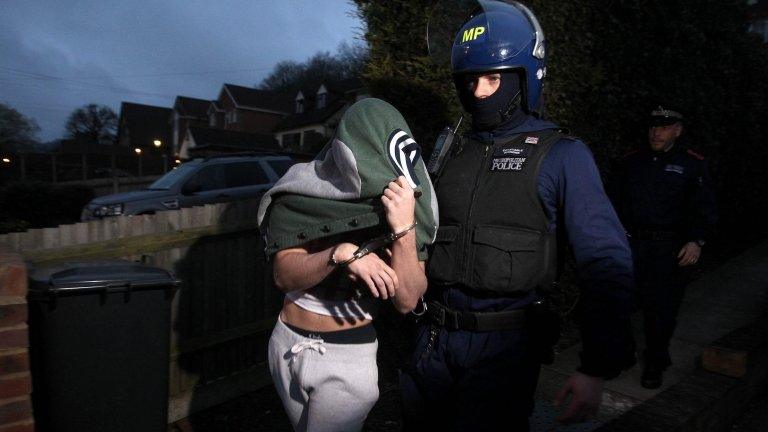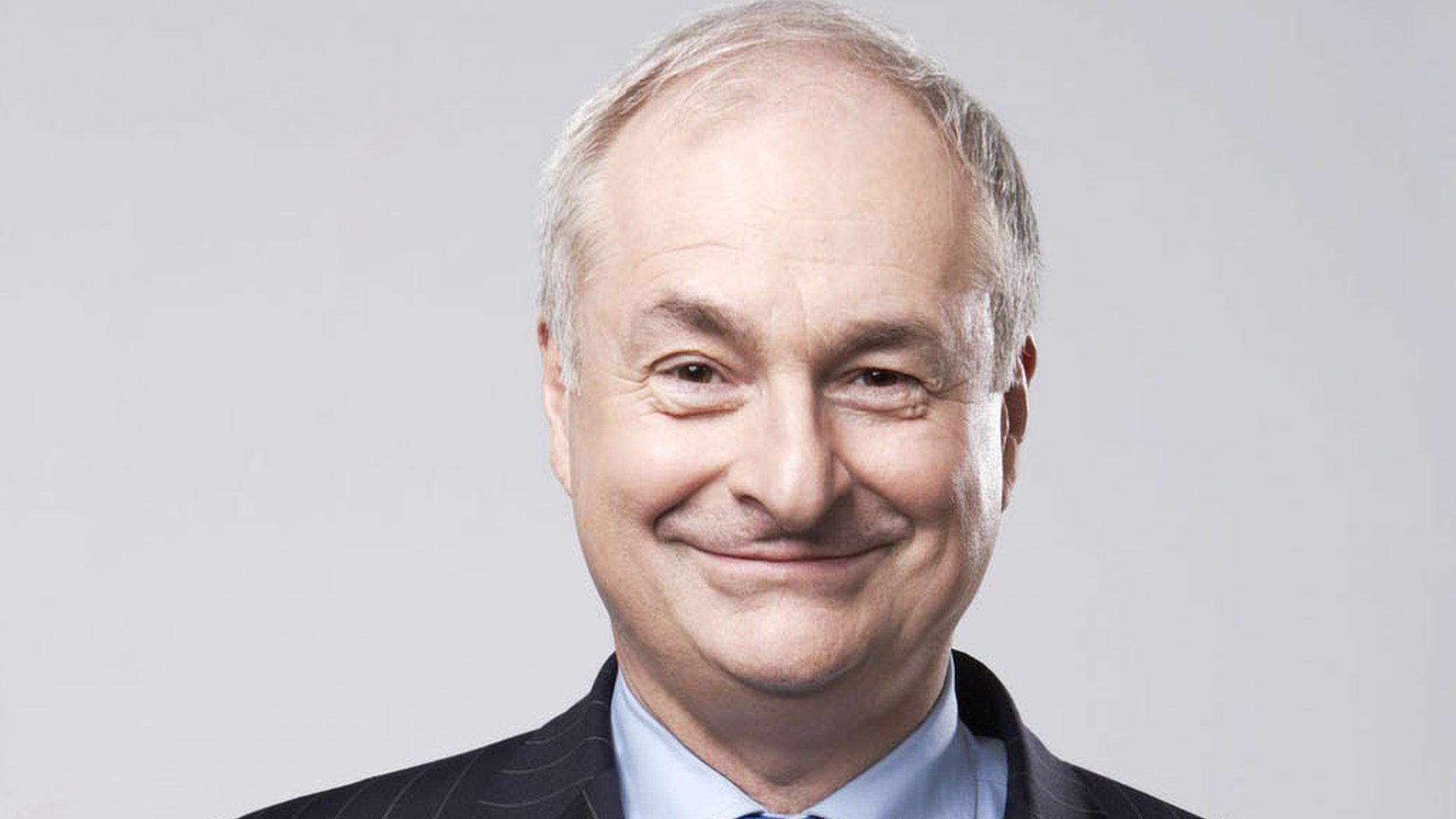Police bail time limit for suspects considered
- Published
Theresa May wants to prevent people having to wait months on police bail
Limits could be put on the time people can be on police bail in England and Wales, the home secretary has said.
Theresa May said the Home Office would hold a consultation on bringing in a limit, while the College of Policing will review the use of police bail.
It follows cases including those of Jim Davidson and Paul Gambaccini - all on bail for months but never charged.
Figures collected by BBC Radio 5live from 40 police forces found 71,526 people currently on bail.
Some journalists accused of phone hacking have been left on police bail for more than two years.
Figures from 5live from 40 out of 44 police forces in England, Wales and Northern Ireland show that there are currently 5,480 people who have been on bail for more than six months.
The figures, resulting from responses to Freedom of Information Act requests, found the longest time a suspect had been bailed was three-and-a-half years, by the Metropolitan Police.
'Future injustices'
BBC broadcaster Mr Gambaccini was on bail for a year before the Crown Prosecution Service concluded he would not face action over alleged historical sex offences.
Mr Gambaccini said he had suffered "12 months of trauma".
Reacting to Mrs May's plans, he said: "If my ordeal can help prevent other persons from suffering a similar fate, it will have been worthwhile.
"This is why I respond to Theresa May's initiative with enthusiasm. I hope it leads to change that will prevent future injustices."
Jim Davidson: "I kept working because I'm innocent"
In the case of Mr Starr, the comedian was on bail for 18 months before being told he would face no further action over allegations of sexual offences.
Comedian Mr Davidson was on bail for eight months before being told he would not face charges over alleged sex offences in the UK.
Life 'on hold'
Patrick Foster, a former Times journalist, spent two years on bail over allegations he hacked the email of an anonymous police blogger.
He said he finally accepted a caution to end the disruption it was causing him and his family.
"You are unemployable, you can't work to earn money, but at the same time you have to meet substantial legal costs," Mr Foster said.
"The people that you love, who have to end up supporting you financially, you put them under a huge amount of stress.
"And when you've already spent two years in a position where your life is completely on hold, you can make no plans whatsoever, the attraction of everything going away with one click of the fingers is too big to ignore."
Mrs May told the conference she was "pleased" the college was developing "evidence-based guidance to bring consistency" in the way bail is used.
"We must also look at statutory time limits on the use of pre-charge bail to prevent people spending months or even years on bail only for no charges to be brought," she said.
A Home Office spokeswoman said no decision had been made on the length of the time limit, and ministers would wait for the results of the consultation before making further decisions.
The College of Policing currently suggests police bail should generally last no more than 28 days, but Chief Constable Alex Marshall - its chief executive - said that might be too short as an "arbitrary figure".
'Sensitive professions'
Human rights group Liberty has called for a six-month statutory limit on pre-charge bail, describing it as the only effective way of ensuring "justice for victims and suspects".
Vera Baird, Police and Crime Commissioner for Northumbria and former Solicitor General for England and Wales, said a six-month time limit was "fairly reasonable".
"There is nothing though to stop the police from releasing people without bail, just to come back in due course, or indeed to delay arresting in some cases," she said.
Also at the conference Mrs May spoke about the Regulation of Investigatory Powers Act (Ripa) which has been used by police to access journalists' phone records without a judge's approval.
"I am already aware that there have been concerns over the use of Ripa to access journalists' phone records and that is why we are revising the relevant code of practice to make clear that specific consideration must be given to communications data requests involving those in sensitive professions, such as journalists," she said.
She also said she had asked the college to look at how forces could go "further and faster" with direct entry, which allows people to join the police at higher ranks rather than beginning as a constable.
- Published28 May 2013

- Published10 October 2014
